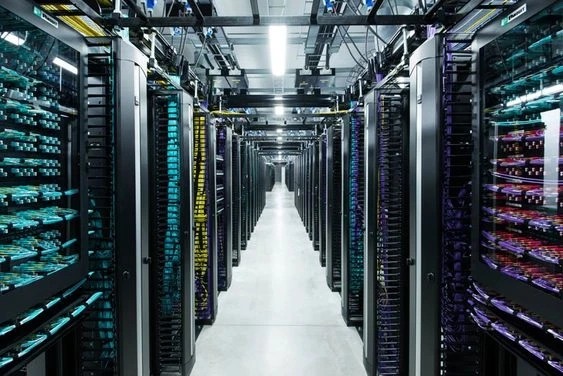Introduction
In today's digital age, the need for efficient and reliable storage solutions is more crucial than ever for businesses. Enter NAS storage solutions, a game-changer for enterprises of all sizes. NAS, or Network Attached Storage, offers a seamless way to store and share data across multiple devices, ensuring that your business operations run smoothly. This blog post aims to provide a comprehensive overview of NAS storage technologies, highlighting their importance, functionality, and future trends. Whether you're a seasoned business owner or just starting, understanding NAS storage can significantly impact your data management strategy.
Understanding NAS Storage
Definition and Functionality
NAS storage is a specialized device connected to a network, providing data access to multiple users and heterogeneous client devices. Unlike traditional storage methods, NAS operates through standard network protocols like TCP/IP. This makes it incredibly versatile and easy to use.
Key Features and Comparisons
Some key features of NAS storage include centralized data storage, easy accessibility, and robust data protection mechanisms. Compared to other storage technologies like Direct Attached Storage (DAS) or Storage Area Networks (SAN), NAS stands out for its simplicity and cost-effectiveness. While DAS connects directly to a computer, making it less versatile, SANs are often more complex and expensive to implement.
Benefits for Businesses
NAS storage solutions offer numerous benefits for businesses, including improved data management, enhanced collaboration, and cost savings. With NAS, businesses can centralize their data storage, making it easier to manage and access. This leads to enhanced collaboration as employees can easily share and access files from any location. Additionally, NAS devices are typically more affordable than other storage solutions, making them a cost-effective choice for small to medium-sized businesses.
Types of NAS Storage
Scale-Up NAS Architectures
Scale-up NAS architectures allow for the addition of more storage drives to an existing system. This type of architecture is ideal for businesses with relatively stable storage needs. It offers the advantage of simplicity and lower initial costs. However, it may become less efficient as storage needs grow, potentially leading to performance bottlenecks.
Scale-Out NAS Architectures
On the other hand, scale-out NAS architectures allow for the addition of multiple NAS devices to a network, effectively increasing storage capacity and performance. This type of architecture is suitable for businesses with rapidly growing storage needs. It offers superior scalability and performance but often comes with higher initial costs and more complex management requirements.
Advantages and Disadvantages
Each type of NAS architecture has its pros and cons. Scale-up NAS is easier to manage initially but may require significant upgrades as storage needs grow. Scale-out NAS provides better long-term scalability and performance but involves higher costs and management complexity. Businesses must carefully consider their specific needs when choosing between these two architectures.
Use Cases
Real-World Examples
Many businesses across various industries have successfully implemented NAS storage solutions. For instance, a mid-sized marketing agency used NAS storage to centralize its vast collection of multimedia files, improving team collaboration and project turnaround times. Similarly, a law firm leveraged NAS storage to securely store and manage sensitive client documents, ensuring compliance with data protection regulations.
Industry-Specific Applications
Certain industries benefit more from NAS storage solutions than others. In healthcare, for example, NAS storage is essential for managing large volumes of patient data and ensuring quick access to medical records. In the finance sector, NAS storage helps in securely storing financial transactions and customer information. Media companies use NAS storage to manage extensive libraries of high-resolution video and audio files, facilitating efficient content production and distribution.
Best Practices for Implementing NAS Storage
Choosing the Right Solution
When selecting a NAS storage solution for your business, consider factors such as storage capacity, scalability, and data protection features. Evaluate different NAS models and vendors to find the best fit for your specific needs. Don't forget to factor in future growth and potential changes in your storage requirements.
Effective Setup and Management
Setting up NAS storage effectively involves configuring network settings, establishing user permissions, and implementing data backup strategies. Regular maintenance is crucial to ensure optimal performance. Employing monitoring tools can help track storage usage and identify potential issues before they escalate.
Future Trends in NAS Storage
Emerging Technologies
The future of NAS storage looks promising with the advent of emerging technologies such as AI and machine learning. These technologies can enhance data management capabilities, providing businesses with deeper insights and more efficient storage solutions. Additionally, advancements in data encryption and security will further bolster the reliability of NAS storage.
Predictions for Business Environments
As businesses continue to generate and rely on vast amounts of data, the demand for efficient and scalable storage solutions will only grow. NAS storage is poised to play a pivotal role in this landscape, offering businesses a reliable and cost-effective way to manage their data. Companies that stay ahead of these trends and invest in NAS storage solutions will likely gain a competitive edge.
Conclusion
In conclusion, NAS storage solutions are indispensable for modern businesses, offering a blend of simplicity, scalability, and affordability. By understanding the various types of NAS architectures, real-world applications, and future trends, business owners can make informed decisions that enhance their data management strategies. Don't miss out on the benefits of NAS storage—explore your options and invest in a solution that meets your business needs today.
If you're ready to take the next step in optimizing your business's data storage, consider exploring our range of NAS storage solutions. Our team of experts is here to help you find the perfect fit for your unique requirements. Get started today and experience the difference that efficient data management can make for your business.



